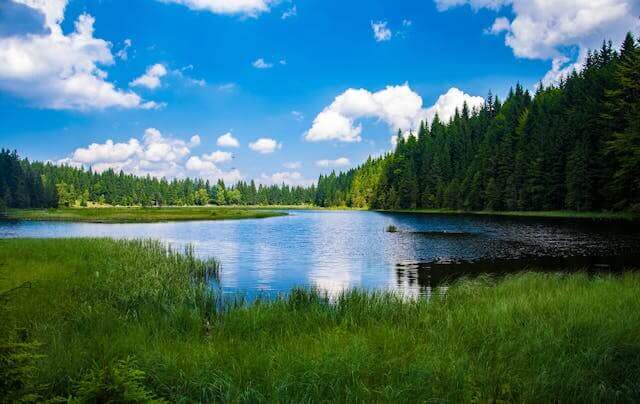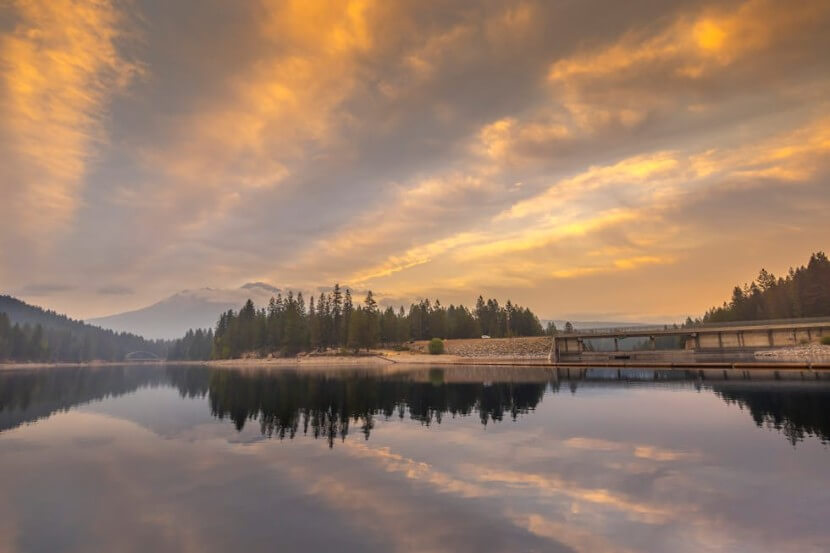| der Bach |
Wir wandern entlang des Baches. |
We are hiking along the stream. |
| der Baum |
Der Baum ist sehr hoch. |
The tree is very tall. |
| der Berg |
Wir klettern auf den Berg. |
We are climbing the mountain. |
| die Blume |
Die Blume ist schön. |
The flower is beautiful. |
| der Felsen |
Der Felsen liegt am Strand. |
The rock is on the beach. |
| der Fisch |
Im See gibt es viele Fische. |
There are many fish in the lake. |
| der Fluss |
Der Fluss fließt ins Meer. |
The river flows into the sea. |
| das Gebirge |
Das Gebirge ist mit Schnee bedeckt. |
The mountain range is covered with snow. |
| das Gras |
Die Kühe fressen das Gras. |
The cows eat the grass. |
| der Himmel |
Der Himmel ist blau. |
The sky is blue. |
| das Insekt |
Das Insekt sitzt auf der Blume. |
The insect is sitting on the flower. |
| die Küste |
Wir machen Urlaub an der Küste. |
We are vacationing on the coast. |
| das Meer |
Das Meer ist ruhig heute. |
The sea is calm today. |
| der Mond |
Der Mond scheint hell. |
The moon shines brightly. |
| die Natur |
Ich liebe die Natur. |
I love nature. |
| die Pflanze |
Die Pflanze braucht Wasser. |
The plant needs water. |
| der Regen |
Der Regen fällt leise. |
The rain falls softly. |
| der Schnee |
Im Winter gibt es viel Schnee. |
In winter there is a lot of snow. |
| der See |
Wir schwimmen im See. |
We are swimming in the lake. |
| die Sonne |
Die Sonne scheint. |
The sun is shining. |
| der Strand |
Die Kinder spielen am Strand. |
The children are playing on the beach. |
| der Sturm |
Ein Sturm zieht auf. |
A storm is coming. |
| das Tier |
Das Tier lebt im Wald. |
The animal lives in the forest. |
| die Umwelt |
Wir müssen die Umwelt schützen. |
We must protect the environment. |
| der Vogel |
Der Vogel singt im Baum. |
The bird is singing in the tree. |
| der Wald |
Der Wald ist dicht und grün. |
The forest is dense and green. |
| die Wiese |
Die Wiese ist voller Blumen. |
The meadow is full of flowers. |
| der Wind |
Der Wind weht stark. |
The wind is blowing hard. |
| die Wolke |
Die Wolken sind weiß und fluffig. |
The clouds are white and fluffy. |
| die Wüste |
Die Wüste ist heiß und trocken. |
The desert is hot and dry. |


